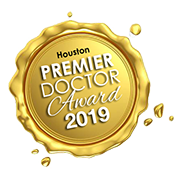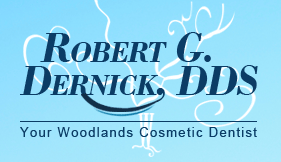How Can Your Woodlands Dentist Treat Obstructive Sleep Apnea?
An estimated 25 million adults in the US suffer from sleep apnea. People who are diagnosed with the condition have many more treatment options than ever. Treatment for obstructive sleep apnea is important because of the number of health risks it is associated with. Because of its threat to one’s overall health, the medical community is trying to find effective treatment solutions. Dentists are in the fight as well and offer treatment options to help alleviate the symptoms of OSA. Many people don’t realize that your dentist can help ease sleep apnea.
What is Sleep Apnea?
People with this chronic condition stop breathing briefly throughout their sleep at night. Obstructive sleep apnea is the most common form. When breathing is interrupted, the soft tissue in the airways collapses. This collapse is called apnea. When the tissue collapses, oxygen cannot pass through the airway to reach the lungs. This becomes very disruptive to sleep patterns. If not treated, it can cause lethargy and extreme feelings of tiredness or fatigue. This can have long-term effects on both physical and mental health.
How can a Dentist Help with Obstructive Sleep Apnea?
Dentists can help with sleep apnea by providing treatment options. They may recommend oral appliances to wear while sleeping. The devices help ease symptoms in some patients who have mild to moderate sleep apnea.
Mandibular Devices
A mandibular device, or dental sleep device, is the most used oral appliance. They resemble a mouthguard in appearance, and they push the lower jaw forward. By pushing the jaw forward, the muscles that collapse during apneas become tight. This keeps them from falling down. Over time, the oral appliance can help strengthen the airway. As the airway becomes stronger and more rigid, apneas are reduced or eliminated altogether. Some oral appliances are adjustable so patients can alter the position of the jaw while the mouthpiece is in place.
A dentist performs an assessment of the teeth, mouth, and temporomandibular joints to ensure a patient is a good candidate for an oral appliance. Once Dr. Dernick determines someone is a good candidate, he will create a model of their teeth that will be used to custom-make an oral appliance. The custom-fit device will fit perfectly because it’s designed specifically for their mouth. Having a proper fit is necessary to prevent damage to the jaw. Patients will wear the device while they sleep to alleviate the symptoms of sleep apnea.
Tongue-Retaining Devices
A tongue-retaining device is not as commonly used as a mandibular device. However, they are appropriate for mouths with a wider range. This type of appliance holds the tongue in a forward position. Since the tongue is attached to the lower jaw, it keeps the airway open.
Dr. Dernick works closely with his patients to ensure oral appliances work and improve the symptoms of sleep apnea. The devices may feel a bit uncomfortable at first. However, most patients adjust easily within just a few days. To get the best results, it’s important that continued use is monitored closely.
Benefits of Using Oral Appliances for Sleep Apnea
For the right candidates, oral appliances are a great option. They are more affordable than other treatment options like CPAP machines. There are few, if any side effects from using oral appliances, and since they are custom-made for each patient, they provide maximum comfort.
Schedule Your Exam with Dr. Dernick, DDS Today!
Do you suspect you have sleep apnea? Have you already received a diagnosis? Call us today to schedule an exam and discuss your treatment options with Dr. Dernick.



